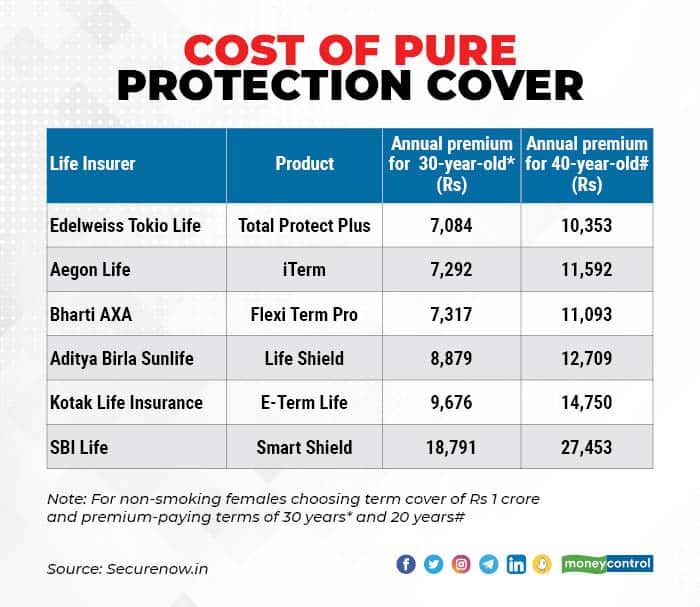



Pure protection term insurance premiums are set to see a spike yet again. This time, the jump is likely to be in the range of 25-45 percenton the back of rising re-insurance rates in the global market, say industry watchers. Several life insurance companies have raised their premiums since the COVID-19 outbreak last year due to concerns over high mortality rates. This time round, too, the pandemic-driven higher death rate is the culprit.
High reinsurance rates will push up Indian term premiumsInternational reinsurer Munich Re has reportedly intimated life insurers in India regarding the impending price increase in December. “Some may pass on part of the rate hike, while others could absorb a part of the increase or negotiate with their reinsurers to reduce the extent of hike. Some insurers have already raised rates,” says a top insurance aggregator official who spoke on the condition of anonymity.

In fact, the price increase has already been factored into group term insurance policies. “In this segment, premiums have already gone up by 30-100 percent. “It is likely that individual term rates will also go up substantially. For individual term premium increases, the regulatory approval process is longer, so that is why insurers are yet to pass on the rate hikes, but it will happen eventually,” says Abhishek Bondia, Managing Director and Principal Officer, Securenow.in, an insurance broking portal.
Also read: Five necessary insurance covers we rarely speak about Low base, significant hikeUnlike the earlier rounds of hikes since the COVID-19 outbreak in India, this time, the premium increase will be substantial. The absolute rate rise could be stark given the low term insurance rates that the country has enjoyed for the last 10 years. “Term products in India have been under-priced for long. So, a correction was due in any case. And, this could not be put off any further due to mounting COVID-19 death claims. While we have seen hikes since last year, they were in the range of around 10-15 percent. However, the quantum of increase this time is likely to be very significant if the insurers pass on the entire reinsurance rate increases to policyholders,” says the senior official with the insurance web aggregator quoted earlier.
Should you buy a policy now?Yes, say financial planners, if you have been planning to buy one due to change in needs – you have recently had kids, bought a house or taken on any other liability. Or, if your current protection cover is inadequate and there is a need to increase it. “Indians are under-insured. We buy insurance for investment and for tax-saving, and not to protect our families. Hence, our sum assured is often less than half of what we need. So, with insurance companies likely to increase premium rates, it's a good idea to have a relook at your current needs and evaluate if you need additional cover,” say Shwetha Jain, Founder, Investography, a Bengaluru-based financial planning firm.
If you need a cover, you need not delay the purchase any further. After all, the threat of COVID-19 third wave still looms large. Europe and the United States have already reported spikes in cases, hospitalisations and deaths in the last few weeks. “Better to buy your cover now than once the rates increase. Term rates stay the same once committed, so better to commit now. Also, you can discontinue if you don't feel the need for it in a few years,” adds Jain.
Do not make the mistake of assuming that your age can put you in a safe corridor. “The primary reason for rate hikes is COVID-19 mortality, and this cuts across age-groups. Once you buy a policy, the term rates will remain the same throughout the tenure, so it makes sense to lock into lower rates now,” says Bondia.
Discover the latest Business News, Sensex, and Nifty updates. Obtain Personal Finance insights, tax queries, and expert opinions on Moneycontrol or download the Moneycontrol App to stay updated!
Find the best of Al News in one place, specially curated for you every weekend.
Stay on top of the latest tech trends and biggest startup news.